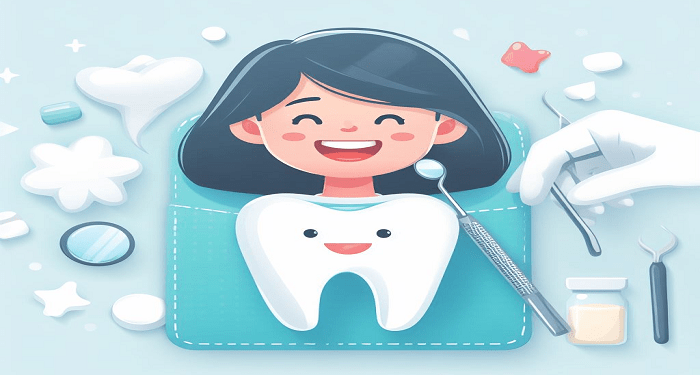What is wisdom tooth extraction?
Wisdom tooth extraction is a surgical procedure in dentistry that involves the removal of the third molars, commonly known as “wisdom teeth.” These are the last set of molars located at the back of the mouth, one on the upper and one on the lower jaw on each side, typically appearing in late adolescence or early adulthood, often between the ages of 17 and 25.
Why are wisdom teeth extracted?
Wisdom teeth are often extracted for several reasons. As explained by Dr Wong Wai Yee, Dental Specialist in Oral and Maxillofacial Surgery in Singapore, these third molars at the back of the mouth frequently become impacted, meaning they don’t have enough space to emerge properly, which can lead to pain, discomfort, and even infection. Their late eruption, usually in late adolescence or early adulthood, can also disrupt the alignment of existing teeth, causing crowding and misalignment issues. Additionally, partially erupted wisdom teeth can create pockets in the gums that are challenging to clean, increasing the risk of infection and gum disease.
Why is it important to maintain oral health after wisdom tooth extraction?
The importance of maintaining oral health after wisdom tooth extraction cannot be overstated. This surgical procedure, while necessary to address potential dental problems, leaves behind open wounds that are susceptible to infection. Proper oral care is essential to prevent complications such as infections and dry sockets, which can cause significant discomfort and delay the healing process.
Additionally, maintaining oral hygiene after extraction safeguards the overall health of the mouth, protects against gum disease, and preserves the alignment of nearby teeth. Neglecting oral health during this critical period can lead to long-term issues that may require further intervention.
What are the risks of not maintaining good oral health after wisdom tooth extraction?
Neglecting to maintain good oral health after wisdom tooth extraction can pose several risks and potential complications:
- Infection: Failing to keep the extraction sites clean can lead to bacterial infections. Infections can cause pain, swelling, and a delay in the healing process. They may require antibiotic treatment.
- Dry Socket: Inadequate oral care increases the risk of dry socket, a painful condition where the blood clot that forms in the extraction site dislodges or dissolves prematurely. This exposes the underlying bone and nerves, leading to severe pain and the need for additional treatment.
- Prolonged Discomfort: Poor oral hygiene can result in ongoing discomfort, which can last longer than expected after the extraction. This can affect one’s quality of life and daily activities.
- Gum Problems: Neglecting oral hygiene may lead to gum disease (periodontal disease) in the surrounding areas. Gum disease can cause inflammation, bleeding, and potentially more complex dental issues.
How to maintain good oral health after a wisdom tooth extraction?
Maintaining good oral health after a wisdom tooth extraction is essential for a smooth and successful recovery. Here are some steps to follow:
- Follow Post-Operative Instructions: An oral surgeon will provide the patient with specific post-operative instructions. It’s crucial to follow these guidelines meticulously. These instructions typically cover topics like oral care, diet, medication, and activity restrictions.
- Oral Hygiene: Continue practicing good oral hygiene, but be gentle around the surgical sites. Here’s how to maintain oral health:
- Brush the teeth carefully with a soft-bristled toothbrush. Avoid the surgical sites and stitches, but keep the rest of the mouth clean.
- Use warm salt water rinses as recommended by the oral surgeon to help reduce the risk of infection. Rinse gently to avoid dislodging blood clots or sutures.
- Avoid mouthwash with alcohol, as it can be too harsh during the initial healing phase.
- Diet: Follow any dietary restrictions or recommendations provided by the oral surgeon. Typically, patients need to stick to a soft or liquid diet for the first few days to avoid irritating the surgical sites. Foods like yogurt, applesauce, pudding, and soups are good options.
- Hydration: Stay well-hydrated by drinking water, as this can help maintain saliva production and prevent dry mouth.
- Medication: Take prescribed pain medications and antibiotics as directed by an oral surgeon. Patients must inform them if they experience any adverse effects or have concerns about their medication.
- Pain Management: Use ice packs as recommended to reduce swelling and over-the-counter pain relievers, if approved by the oral surgeon. Avoid aspirin, as it can increase the risk of bleeding.
- Activity and Rest: Get adequate rest and avoid strenuous physical activity during the initial recovery period. This helps the body heal more efficiently.
- Avoid Smoking and Alcohol: Avoid smoking and alcohol, as they can slow down the healing process and increase the risk of complications.
- Oral Examination: Attend any follow-up appointments as scheduled by the oral surgeon. They will assess the progress and address any concerns.
- Be Patient: The recovery period can vary from person to person, but typically, the initial healing phase lasts a few days to a week. It may take several weeks for complete healing. Be patient and give the body time to recover.
Maintaining oral health after wisdom tooth extraction is not merely a recommendation but a vital aspect of a smooth and uneventful recovery. It is an investment in comfort, well-being, and the long-term health of the mouth. By following the dentist’s or oral surgeon’s post-operative care instructions, keeping the surgical sites clean, and practicing good oral hygiene, one can mitigate the risks of complications and ensure a quicker and more comfortable healing process. Remember, a few days of diligent oral care can pave the way for a lifetime of healthy and pain-free smiles.













